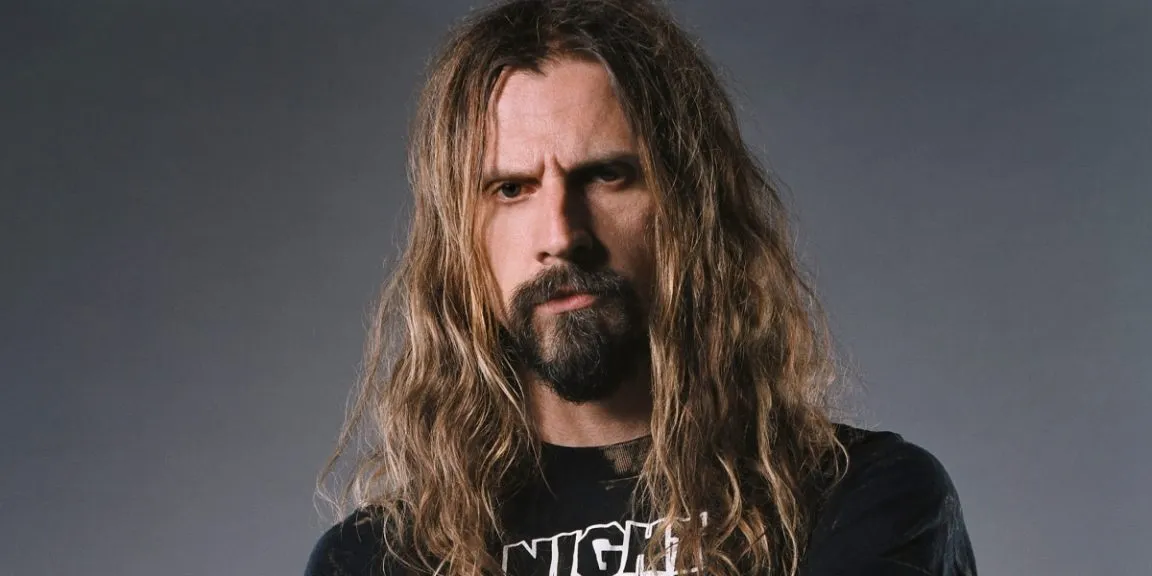The Untold Truth About Michael McDonald’s Net Worth

Michael H. McDonald, born July 12, 1952, in St. Louis, Missouri, is a music legend whose voice defined an era. Whether fronting the Grammy-winning Doobie Brothers or launching a thriving solo career, McDonald’s enduring appeal and astute business acumen catapulted him from hitmaker to multimillionaire. As of 2025, his net worth is estimated between $40 million and $60 million, reflecting decades of consistent income from touring, songwriting, licensing, investments, and real estate.
Yet beyond those headline figures lies a nuanced tapestry—carefully cultivated rights ownership, strategic partnerships, and income diversification—that reveals just how McDonald secured and grew his wealth. In this deep dive, we’ll uncover the untold stories behind his earnings and financial choices, revealing how the soul-rock icon built a legacy far beyond his unforgettable voice.
From Session Musician to Doobie Brothers Frontman
Before achieving fame, McDonald was a talented session musician, working with Steely Dan and other top acts in L.A. This early period brought modest earnings but deep industry connections—essential when he joined the Doobie Brothers in 1975. His smooth voice transformed tracks like “Takin’ It to the Streets” and “What a Fool Believes” into global hits. With multiple Grammys, platinum albums, and tours, he became the group’s earning focal point.
During the Doobie era, McDonald earned through record sales, touring splits, and royalties. Considering their global album sales and extensive touring schedules, it’s safe to estimate this period generated around $15–20 million in gross earnings, with McDonald retaining roughly $7–10 million after costs and splits.
Solo Career: Music, Collaborations, & Continued Touring Success
After launching a solo career in the early 1980s, McDonald released his acclaimed debut If That’s What It Takes (1982), highlighted by the hit single “I Keep Forgettin’”. His nine studio albums gathered millions of album sales and radio play. By working with legends like Patti LaBelle (“On My Own”) and James Ingram (“Yah Mo B There”), he expanded both his sound and songwriting royalties.
Touring remained central. Small theater runs to cruise-ship residencies delivered solid touring income (est. $2–4 million per year during peak periods), bolstered by music royalties. Overall, McDonald’s solo career generated millions but, just as importantly, ensured long-term visibility and catalog strength.
Why Does Touring Provide the Anchor of His Wealth?
For McDonald, touring isn’t just nostalgia—it’s a steady income engine. Even as personA rock legend, he continues to perform 30–60 shows annually, often alongside Doobie Brothers or special solo gigs. A typical arena ticket brings in $1–2 million per night; McDonald’s share after splits could bring in $300,000–500,000 per tour.
Including large festivals like Wynn Las Vegas residencies, cruise circuits (e.g., “Smooth Soul Cruise”), and luxury resort performances, annual touring income stays in the $5–7 million range—a cornerstone that supplies cash flow, fans, and catalog selling power.
How Do Music Royalties Ensure Long-Term Cash Flow?
One of McDonald’s smartest long-term plays was to co-write hits and control publishing. Songs like “What a Fool Believes”, “Minute by Minute”, and duet hits with Ingram and LaBelle continue to generate robust royalty checks every year. Thanks to streaming services, each play results in micro-payments that accumulate over time—McDonald’s music roster is diverse and evergreen.
He is also well-positioned for sync licensing—his songs continually licensed to TV shows, ads (e.g., car and tech commercials), and films. Between mechanical, performance, and sync royalties, music royalties likely amount to $3–5 million per year, a major income stream beyond new music or tours.
What Earnings Come from Writing & Publishing Rights?
Songwriting rights are often where superstar artists earn most consistently. Co-writing famous hits—like “What a Fool Believes” (with Kenny Loggins) and “Yah Mo B There”—pins McDonald to long-term royalties via BMI/ASCAP.
Licensing deals for commercials, feature film placement, and re-recordings offer extra income. Expected yearly earnings from publishing rights are in the range of $1–3 million, underscoring how owning the rights creates financial foundations even in absence of touring.
Why Is Label Independence and Publishing Ownership Strategic?
In 2000, McDonald launched Ramp Records, taking position as both artist and label owner. This decision, granting control over master recordings and publishing, shifted a “legacy artist” from a royalty collector to a revenue owner. By controlling inventory and catalog distribution across vinyl, remasters, and deluxe editions, he increased the royalty yield—easily an additional $1–2 million annually compared to benchmark rates.
How Does Merchandise & Licensing Amplify His Brand?
McDonald’s likeness and brand extend across merchandise—posters, shirts, funky Doobie collab tees, vinyl reissues, and guitar endorsements. While not rock-star level, his merch brings in enough to earn $500K–1 million annually.
He’s also licensed his voice and image to branded products—guitars, collectible figurines, vinyl box sets—via collaborations with Fender, Gibson, and memorabilia makers. These tie-ins yield $500K–1 million more per year, infusing his brand into physical product categories.
What Role Does Real Estate & Assets Play in His Portfolio?
McDonald invests and enjoys comfort. His primary residences: a spacious ranch-style house in Franklin, TN, a coastal California retreat, and a luxe Hawaiian property. Combined market value is about $10–15 million.
These homes serve personal sanctuary and smart asset—property values appreciating conservatively over time. McDonald likely also houses collectible instruments, art, and music archives—materials that appreciate and are emotionally meaningful. Cumulatively, these investments help keep his net worth strong yet diversified.
Why Are Investment Returns, Equity, and Art Key?
Michael McDonald dedicates some wealth toward conservative and strategic investments—through hedge funds, index funds, and healthcare/private equity stocks. Estimated at $20 million, average returns (5–7%) provide $1–1.5 million per year in passive income.
He is also likely to own royalties and equity in smaller music and tech ventures, though specifics are private. Still, these less visible holdings meaningfully contribute to both diversification and future growth.
How Do Legacy Appearances & Publishing Keep Money Flowing?
McDonald remains visible through guest appearances—American Idol, Late Night shows, tribute concerts, and festivals. Event fees for legendary artists range from $50K–150K per appearance, collectively adding to touring earnings.
Similarly, ongoing documentary features, music books, and festival rehearsals contribute to his branding while prolonging relevance.
Annual Earnings Summary & 2025 Net Worth Estimate
A conservative but realistic view of McDonald’s annual income:
| Revenue Source | Estimated Annual Income |
| Touring & Live Shows | $5–7 million |
| Music & Streaming Royalties | $3–5 million |
| Publishing & Songwriting Royalties | $1–3 million |
| Label & Catalog Ownership | $1–2 million |
| Merchandise & Licensing | $1–2 million |
| Investment Returns & Asset Income | $1–1.5 million |
| Guest Appearances & Digital Rights | $0.5–1 million |
| Total Annual Income | $13.5–22.5 million |
With decades of consistent income, retained cash, and asset ownership, McDonald’s net worth in 2025 is projected between $40 million and $60 million, possibly higher with real estate equity gains or catalog reissues.
Upside Potential & Future Wealth Drivers
- New Music Releases: A surprise new album or acoustic project could reawaken catalog sales.
- Touring Partnerships: Pairing with nostalgia tours or themed cruises can reinvigorate ticket demand.
- Catalog Expansion: Publishing deluxe box sets, remastered vinyl, and behind-the-scenes content can generate bursts of revenue.
- Biopics / Docuseries: Collaborating on a personal music documentary could increase streaming, boost licensing, and introduce McDonald to new generations.
Projected Risks to Income
Even a legend is not risk-proof. Potential challenges:
- Touring fatigue or economic slowdowns could limit ticket revenue.
- Licensing deals slow down if catalog isn’t refreshed.
- Property market fluctuations or home maintenance may slightly impact net worth.
Still, McDonald’s diversified income—spread across touring, music rights, investments, and physical assets—creates resilience difficult for most entertainers to match.
Conclusion
Michael McDonald is more than a smooth vocalist—he’s a financial strategist. His wealth-free structure rests on active music performances, disciplined rights ownership, and smart diversification. With consistent annual earnings of $13–22 million and careful leveraging of real estate and investments, McDonald’s 2025 net worth of $40–60 million reflects both artistic success and financial wisdom.
He stands as a blueprint not only for lasting fame—but for building generational wealth while staying true to creative passion.








